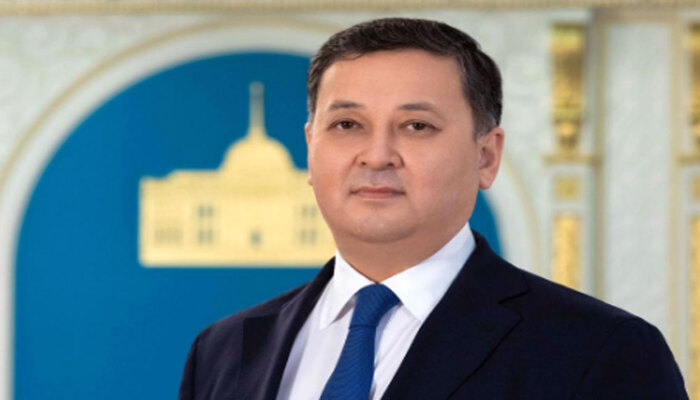The Kazakhstan Deputy PM and Foreign Minister Murat Nurtleu will arrive in Islamabad on Monday for a two-day official visit, marking a new chapter in the strengthening of bilateral relations between Pakistan and Kazakhstan. His trip, accompanied by a senior delegation, is expected to pave the way for deeper cooperation across key sectors and prepare the ground for the upcoming state visit of Kazakhstan’s president in November.
High-Level Delegation
Murat Nurtleu will be joined by a 13-member delegation that includes Kazakhstan’s Minister of Transport along with senior officials from various ministries. The presence of such a diverse team highlights the significance Astana places on strengthening ties with Islamabad, particularly in areas related to economic growth, connectivity, and regional development.
Key Diplomatic Meetings
The visit’s agenda begins with a one-on-one meeting between Murat Nurtleu and Pakistan’s Deputy Prime Minister and Foreign Minister, Mohammad Ishaq Dar. This session will be followed by delegation-level talks where both sides will engage in comprehensive discussions.
Nurtleu is also scheduled to meet the President of Pakistan and the Prime Minister, ensuring that the highest level of Pakistan’s leadership is engaged in shaping the partnership. These interactions reflect the importance Islamabad places on Kazakhstan as a strategic partner in Central Asia.
Preparations for Presidential Visit
A major focus of the talks will be to finalize preparations for the forthcoming visit of Kazakhstan’s President to Pakistan, expected in November 2025. The presidential visit is being seen as a landmark opportunity to elevate bilateral relations to a higher plane. Both countries are keen to ensure that the groundwork laid during Murat Nurtleu’s trip leads to practical results.
Expanding Bilateral Cooperation
During the meetings, officials will review the entire spectrum of Pak-Kazakh cooperation. Trade and investment will be at the center of discussions, with both sides seeking ways to expand market access, diversify trade products, and facilitate greater private sector collaboration.
Read: Air Vice Marshal Shehryar Warns of Decisive Response
Agriculture will also be a key agenda item, given both countries’ strong farming sectors and potential for technology and expertise exchange. Pakistan sees Kazakhstan as a vital partner in grain trade and livestock development, while Kazakhstan looks to Pakistan’s expertise in textile and agro-based industries.
Education and cultural exchanges are expected to feature prominently as well. Both governments aim to strengthen academic linkages, student exchange programs, and cultural cooperation to foster deeper people-to-people connections. Tourism, an emerging sector in both countries, will also be prioritized, with an emphasis on promoting joint initiatives to attract travelers.
Focus on Connectivity and Logistics
One of the central themes of this visit is regional connectivity. With Kazakhstan’s strategic location in Central Asia and Pakistan’s position as a gateway to South Asia and beyond, both countries recognize the importance of logistics and transport cooperation.
The inclusion of Kazakhstan’s Transport Minister in the delegation underscores Astana’s interest in developing corridors that could link Central Asia with Pakistani seaports. Improved logistics chains could significantly boost trade volumes, making the partnership vital not only for bilateral ties but also for wider regional integration.
Meetings of Joint Working Groups
On the sidelines of the visit, Joint Working Groups on Agriculture and Information Technology will also convene. These meetings are designed to turn political commitments into practical frameworks for collaboration. In agriculture, the focus will be on sustainable farming practices, technology sharing, and food security. In IT, both sides will explore partnerships in software development, digital infrastructure, and capacity building.
Such institutional mechanisms are critical in ensuring that the outcomes of high-level talks are implemented effectively.
Strengthening Regional Role
The visit also carries broader regional significance. Kazakhstan and Pakistan share common interests in promoting peace, security, and development across Central and South Asia. Their cooperation extends to multilateral fora, where they often align positions on global issues such as climate change, sustainable development, and counterterrorism.
By engaging more closely, both countries can enhance their influence within organizations like the United Nations, the Organization of Islamic Cooperation, and the Shanghai Cooperation Organization.
Cementing Longstanding Ties
Pakistan and Kazakhstan have enjoyed longstanding relations built on shared history, faith, and cultural linkages. Over the years, both governments have sought to translate these ties into concrete economic and strategic partnerships.
The visit of Murat Nurtleu is therefore more than a routine diplomatic exchange—it represents a reaffirmation of mutual trust and a determination to take the relationship to new heights. Officials on both sides are optimistic that the momentum generated will not only strengthen bilateral cooperation but also contribute to stability and prosperity in the wider region.
Follow us on Instagram, YouTube, Facebook,, X and TikTok for latest updates
